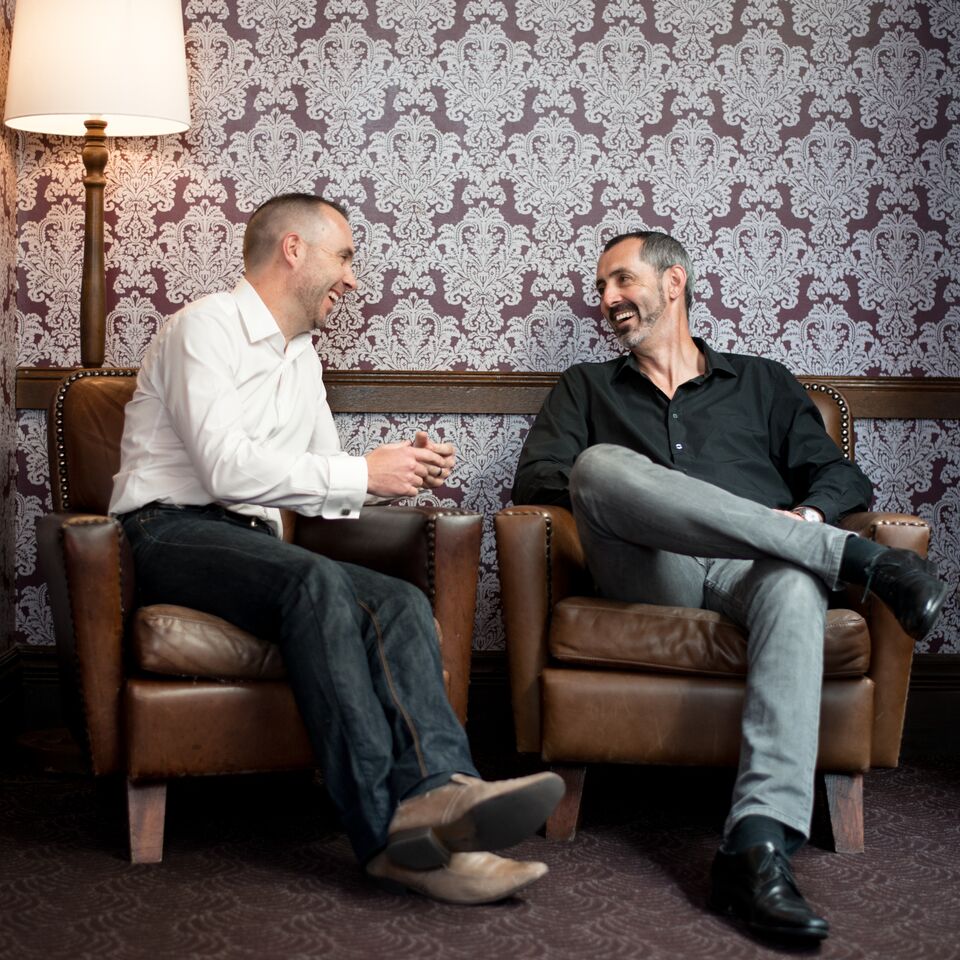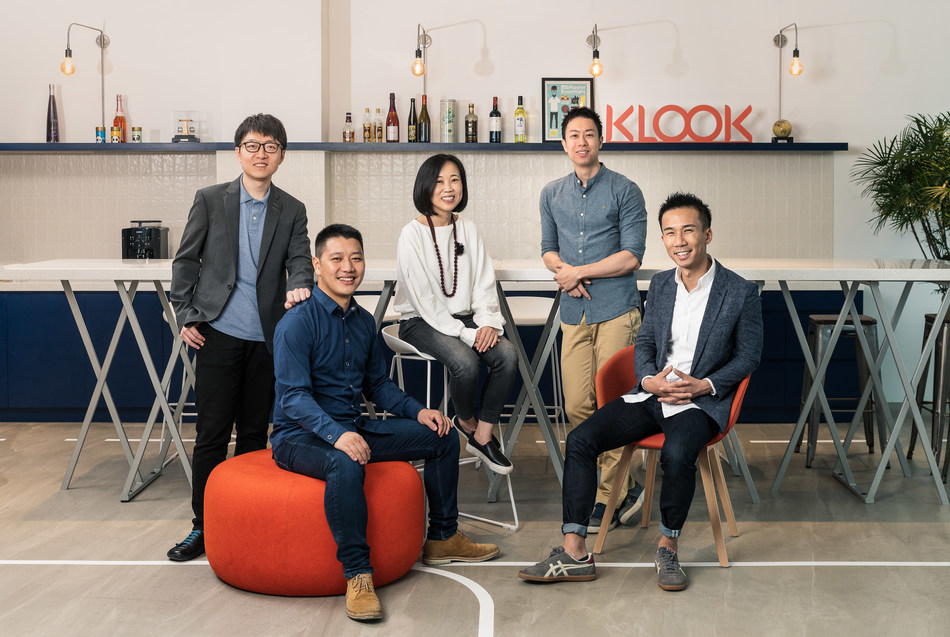

Welcome to club fear!!


BSI Innovation blogs about Innovation, Money, Venture Capital, Grants, Exports and Research and Development (R&D)






http://www.finsmes.com/2018/08/financial-business-management-platform-practifi-raises-aud3m.html

The round was led by Microequities Venture Capital Fund and nd Howard Leibman Microequities and Equity Venture Partners will join the board.
The funds are planned to be used to establish North American presence and build a range of new product integrations with other financial apps and tools.
Founded in 2013 by Adrian Johnstone and Glenn Elliott, PractiFI provides a business growth management platform for forward-thinking financial advice firms. With clients in Australia, New Zealand, the US and Europe, PractiFI provides a wide array of features including pipeline management, productivity tracking, interactive analytics dashboards, asset and liability insights, recordkeeping, compliance and automation tools.
It can be integrated with an increasing number of financial programs and apps.

The round was led by Microequities Venture Capital Fund, with participation from Aconex founders Leigh Jasper and Rob Phillpot. Following the investment, Justin Lipman of Microequities Venture Capital Fund will join the VendorPanel board.
The company intends to use the funds to accelerate growth, extend product development, and expand into new international markets.
Founded in 2008 by James Leathem, and first launched in 2010, VendorPanel provides a procurement platform for government and enterprise in Australia and overseas. The platform is used by 1,235 government bodies, universities, utility companies and corporate organisations in Australia and overseas to manage over $2.4billion in low-value procurement.




At age 35, Spotify co-founder and CEO Daniel Ek is worth a reported $2.9 billion.
Spotify had 170 million monthly active users as of May, and the newly public music streaming service reported bringing in nearly $5 billion in revenue last year.
His success is due in part to strict time management rules and a commitment to focus.
Ek says he has "daily, weekly, monthly goals," and reviews his progress each night, "over allocating" his time toward those goals.
"People think that creativity is this free spirit that has no boundaries. No, actually the most creative people in the world schedule their creativity," Ek says. "If you're really, really focused, those are the times when the breakthroughs come. I might go for three days and not sleep because I'm focused in that moment."
Ek isn't alone in his obsessive strategy.
Tesla and SpaceX CEO Elon Musk similarly hones in on the tasks he deems important.
In fact, Musk is so focused, he has said he sleeps on the factory floor and in April, he revealed didn't even take time to go home and shower when the company's production of Model 3s was behind schedule.
In the early days of his career, Bill Gates was also known for relentless focus on his work at Microsoft. Gates wouldn't stop working to each lunch most days, according to Mark Penn, Microsoft's former chief strategy officer.
"When I worked with Bill Gates, he would eat right through a meeting, never stopping for lunch. At precisely 12:00 p.m. a hand would come through the door holding a white bag for Mr. Gates," Penn writes in his book "Microtrends Squared." "In it were two McDonald's Quarter Pounders and a large fries, his daily choice for years."
There are, however, well-documented benefits to down-time and social relationships.
In fact, "good relationships keep us happier and healthier," according to a 2015 "Ted Talk" by Robert Waldinger, a psychiatrist and professor at Harvard Medical School. In his research, Waldinger found that good health is positively correlated to feeling connected.
"It turns out that people who are more socially connected to family, to friends, to community are happier, they're physically healthier and they live longer than people who are less well connected," he says.
Today, even Bill Gates is taking time to relax more.
"When I was in my 20s and early 30s, my whole life was focused on work," Gates says. "These days, I'm better at balancing the work that I love to do with my foundation and taking time off to spend with family and friends."

Boston’s Restaurant technology startup Toast has pulled in $115 million givingit a valuation of $1.4 billion.
Toast plans to invest the new equity funding in research and development, hiring, and expanding its global operations. Toast says it will grow from about 1,000 employees to more than 1,600 people worldwide by the end of next year.
The Series D investment was led by funds and accounts advised by T. Rowe Price Associates. Tiger Global Management, a new investor in Toast, contributed to the round, along with previous Toast backers, raising more than $200 million in venture capital to date.
Other investors include Generation Investment Management, Lead Edge Capital, Bessemer Venture Partners, and Endeca founder and former CEO Steve Papa.
Others raises this year include American Well’s $290 million-plus round, $150 million for Fuze, and $110 million for Circle.
Toast sells cloud-based software that can handle a range of tasks for restaurants, including executing payments, handling online orders, managing customer rewards programs, and tracking things such as sales, customer ordering data, food inventory, and hours worked by staff. The company says tens of thousands of restaurants use its products, including the Jamba Juice and B.GOOD chains.
Earlier this year, Toast rolled out a handheld payments device, its first hardware product designed in-house. The new product puts the company in competition with tablet makers like Samsung and Apple, and intensifies its rivalry with other payments technology companies, such as Square.
Toast was founded in 2011 by Steve Fredette, Aman Narang, and Jonathan Grimm, three veterans of Endeca, the enterprise software company sold to Oracle for $1.1 billion. Toast’s CEO is Christopher Comparato, another Endeca alum. (The four Toast executives are pictured above.)

One of the world's leading travel activities and services booking platforms on track to hit US$1 billion in bookings in 2018
HONG KONG, Aug. 7, 2018 /PRNewswire/ -- Klook, a world-leading full-service in-destination booking platform, today announced it has closed US$200 million in Series D funding, bringing its total financing to date to US$300 million. This makes Klook the most-funded company in the tours and activities sector globally. Investors in this round include Sequoia China, Matrix Partners, Goldman Sachs, Boyu Capital, TCV, an Asia-based sovereign wealth fund, OurCrowd, and some family offices. Sequoia China, Matrix Partners and Goldman Sachs also led the Series C in October 2017. The investment further strengthens Klook's position as a global player in the travel sector, and accelerates its expansion in the US and Europe, including product growth and technology innovation.

Founded in 2014, Klook is one of the world's fastest-growing booking platforms, covering attractions, tours, and local experiences as well as local transport and railway services around the globe. It offers travelers more than 50,000 activities and services provided by over 5,000 industry partners in 200+ destinations worldwide. Since closing its US$60 millionSeries C fund last year, the company has opened offices in London and Amsterdam, and now employs more than 600 people across 16 offices around the world. Its robust growth is driven by the rise of independent travelers and an increasing consumer appreciation for travel experiences. The company is on track to achieve US$1 billion annual bookings in 2018.
Klook will continue to expand its global footprint, with plans to open an office in the US by the end of 2018. The company will also be adding more US and Europe-based curated activities and services onto the platform to fulfill an increasing demand from Asian travelers for diverse and unique in-destination experiences . Simultaneously, Klook will look to bring more US and European travelers to Asia, supporting the company's long-term vision of serving travelers worldwide to easily discover destinations that are both popular and unique.
Klook has been a pioneer in driving travel innovation, developing travel operator solutions such as the Merchant App and QR-code based e-voucher redemption. Klook's technology solutions have been widely recognized and adopted by its merchant partners including world-renowned attractions, mass railway transit and other offline service operators. Klook will continue to collaborate with its merchant partners to further provide frictionless, real-time booking experiences for modern travelers.
"Our mission is to empower travelers to build their own unique journey," said Ethan Lin, CEO and Co-Founder of Klook, "This round of funding marks an important milestone for us. The funding and extensive experience from our new investors will let us to further solidify our merchant portfolio and provide travelers with even more activities and destinations to explore around the world."
"We are committed to using innovative technologies to help digitize the tours and activities industry," said Eric Gnock Fah, COO and Co-Founder of Klook. "The new funding will help us deepen our partnership with merchants through more technological solutions that bring new sources of customers and optimize operational efficiencies."
"By leveraging their strength in digitally transforming their suppliers of tours and activities and tapping into the new generation of mobile-first travelers, Klook is emerging as the clear leader in the online tours and activities sector," said Neil Shen, Founding and Managing Partner of Sequoia China. "We look forward to seeing Klook help more and more travelers connect to suppliers, and become a key source of inbound demand for Asia and beyond."
"TCV seeks to invest in companies with exceptional management teams that drive technological innovation," said David Yuan, General Partner at TCV. "Klook is at the forefront of transforming the travel industry and we've been impressed with the team and the company's growth. We are excited to help them advance their global strategy and expansion."
About Klook
Founded in 2014, Klook is one of the world's leading travel activities and services booking platforms. Klook gives travelers a seamless way to discover and book popular attractions, tours, local transportation, best foods and must-eats, and unique experiences around the world on its website and award-winning app ('Best of 2015' & 'Best of 2017' by Google Play and Apple App Store). With Klook's innovative technologies, travelers can book after arriving in their destinations and redeem the services by using QR codes or e-vouchers. Each day, Klook empowers countless travelers to indulge in their wanderlust and spontaneity through over 50,000 offerings in more than 200 destinations.
With a team of over 600 across 16 offices worldwide, Klook's services are available in eight languages and 36 currencies. It has raised a total of US$300 million investment from world-renowned investors including Sequoia Capital, Matrix Partners, Goldman Sachs, Boyu Capital, and TCV. Get inspired by Klook at www.klook.com, the company blog or @Klook.
About Sequoia China
The Sequoia team helps daring founders build legendary companies. In partnering with Sequoia, companies benefit from our unmatched community and the lessons we've learned over 46 years. As "The Entrepreneurs Behind The Entrepreneurs", Sequoia China focuses on four sectors: TMT, healthcare, consumer/service, and industrial technology. Over the past 13 years we've had the privilege of working with more than 500 companies in China. For more information, visit www.sequoiacap.com/china/en.
About Matrix Partners
With over US$3 billion under management and nearly 100 investment professionals in China, Matrix Partners specializes in early- and mid-stage investments, and has invested in more than 430 companies, among which 25 have been listed, 9 have reached valuation of over US$5 billion, 25 over US$1 billion. Matrix Partners invests mainly in mobile internet, transaction platform, SaaS, AI, FinTech, mobile healthcare, consumption upgrade, new media and social network, and star portfolios include Didi, Momo, ele.me, ofo, Kingnet, Cheetah Mobile, 21Vianet, Bona Films, Guazi, Baofeng, Edan, tubatu, Zhaogang, Yuantiku, VIPKID, PINTEC, 36Kr, etc. Matrix Partners has offices in Cambridge and Waltham, MA; Palo Alto, CA; Mumbai, India; and Beijing and Shanghai, China.
About Goldman Sachs
The Goldman Sachs Group, Inc. is a leading global investment banking, securities and investment management firm that provides a wide range of financial services to a substantial and diversified client base that includes corporations, financial institutions, governments and individuals. Founded in 1869, the firm is headquartered in New York and maintains offices in all major financial centers around the world. Since 1986, the Principal Investment Area of Goldman Sachs has raised over $140 billion of capital in equity, credit and real estate funds to invest in a variety of geographies, industries and transaction types. With Principal Investment Area representatives in six countries around the world, Goldman Sachs is one of the largest managers of private capital globally, offering deep expertise and longstanding relationships with companies, investors, entrepreneurs and financial intermediaries.
About Boyu Capital
Boyu Capital is a leading Greater China-focused private investment firm with offices in Hong Kong and Beijing. Comprised of a team of experienced investors and business operators, Boyu Capital provides growth capital and strategic support through long-term partnerships with leading entrepreneurs and enterprises, and its portfolio includes some of the largest, best-managed and most innovative companies across the media/technology, consumer/retail, financial services, and healthcare industries in the Greater Chinaregion.
About TCV
Founded in 1995, TCV provides capital to growth-stage private and public companies in the technology industry. Since inception, TCV has invested over $10 billion in leading technology companies and has helped guide CEOs through more than 115 IPOs and strategic acquisitions. TCV's investments include Airbnb, Altiris, AxiomSL, Dollar Shave Club, EmbanetCompass, EtQ, ExactTarget, Expedia, Facebook, Fandango, GoDaddy, HomeAway, LinkedIn, Netflix, OSIsoft, Rent the Runway, Sitecore, SiteMinder, Splunk, Spotify, Varsity Tutors, and Zillow. TCV is headquartered in Menlo Park, California, with offices in New Yorkand London. For more information about TCV, including a complete list of TCV investments, visit https://www.tcv.com/.
About OurCrowd
OurCrowd is the leading global hybrid venture capital platform for accredited investors. Managed by a team of seasoned investment professionals and led by serial entrepreneur Jon Medved, OurCrowd vets and selects opportunities, invests its own capital, and brings companies to its accredited membership of global investors. OurCrowd provides post-investment support to its portfolio companies, assigns industry experts as mentors, and takes board seats. The OurCrowd community consists of almost 25,000 accredited investors from over 150 countries. OurCrowd has raised over $750Mand invested in 160 portfolio companies and funds.
To download photos and other press materials: https://goo.gl/fN1Bz6
To learn more about our investors, please visit:
Sequoia China: www.sequoiacap.com/china/en/
Matrix Partners: www.matrixpartners.com.cn
Goldman Sachs: www.goldmansachs.com
Boyu Capital: http://www.boyucapital.com/
TCV: https://www.tcv.com/
OurCrowd: www.ourcrowd.com/






The taskforce will include representatives from Universities, Chambers and industry experts from Aussie startups.
NSW Premier Gladys Berejiklian said the hub will "cement Sydney as the tech capital of Australia".
Kate Clark August 03, 2018 https://pitchbook.com/news/articles/the-founder-of-peloton-had-a-hard-time-raising-vcand-now-his-companys-worth-4b
